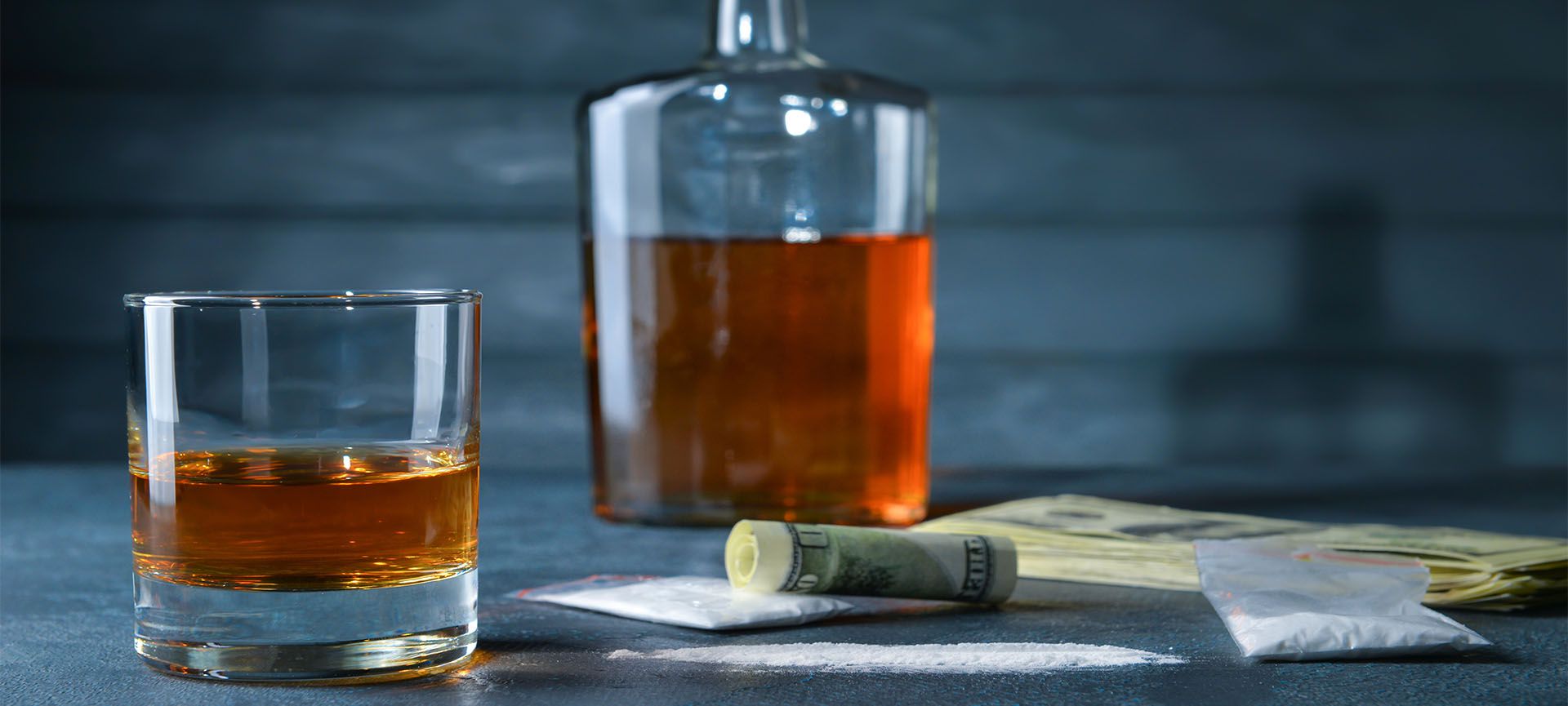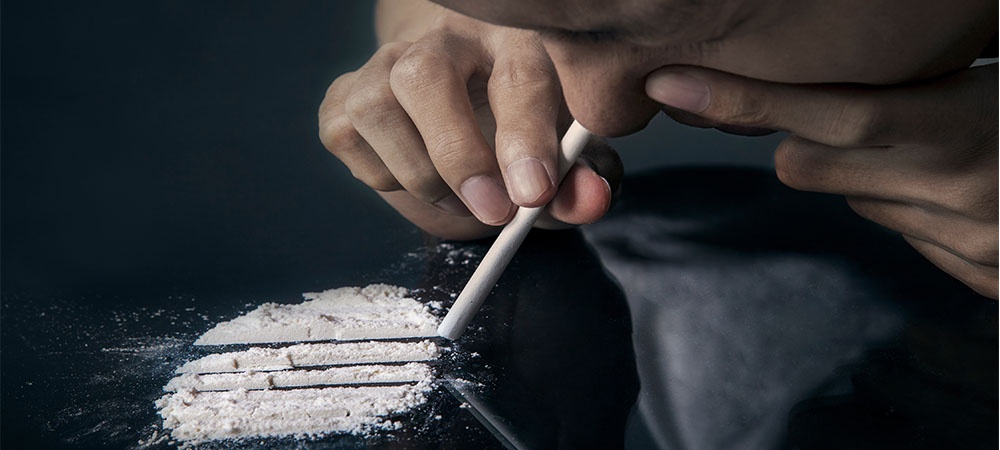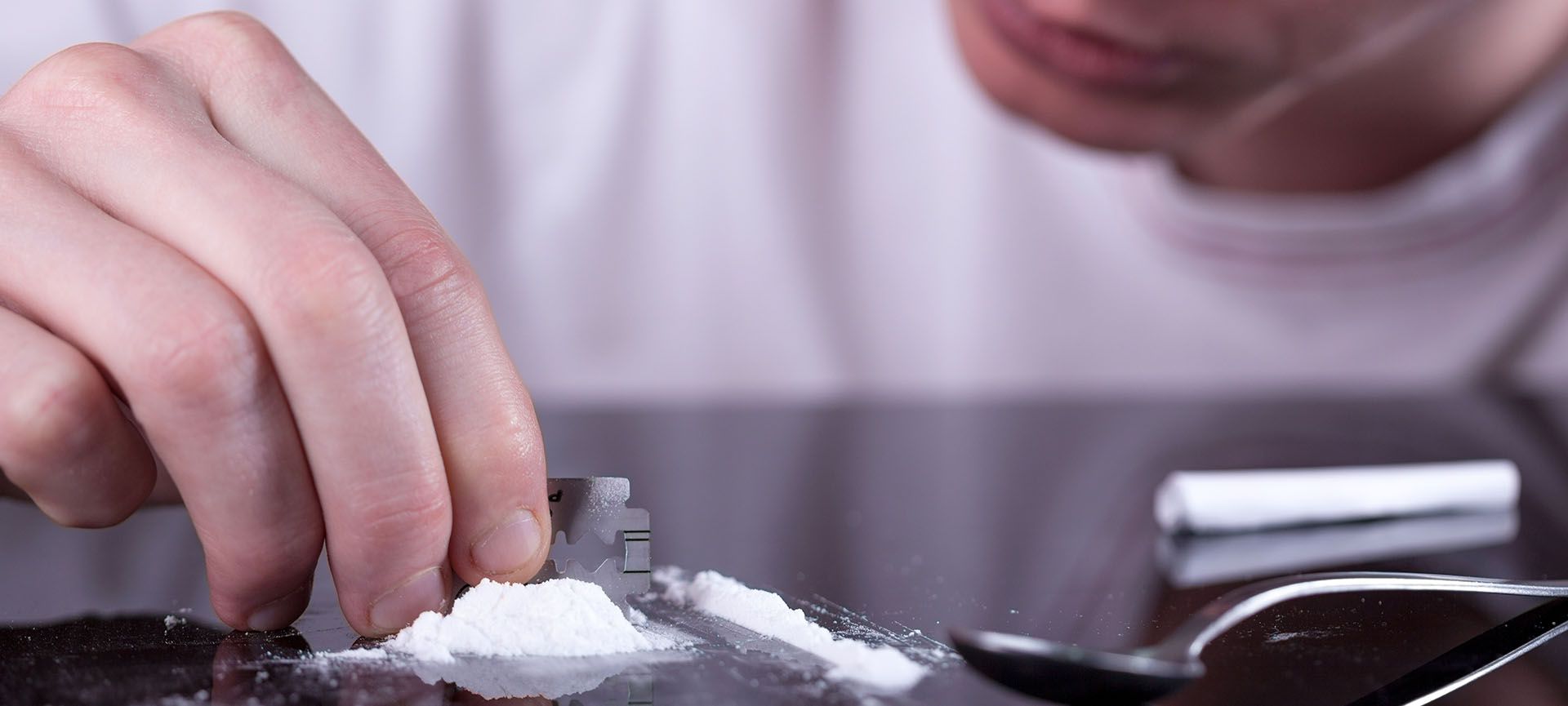
When Cocaine and Alcohol Mix
Whether you take cocaine occasionally or regularly, or have used it once or twice, it is important to understand the risks involved in mixing it with alcohol. Both substances affect the body and mind, even when taken alone, and there are even greater risks when they are consumed together.
As cocaine is a stimulant and alcohol is a depressant, the collective pressure they put on your body and mind can be dangerous. Here we outline the effects of combining cocaine and alcohol, and we explain the long-term implications and treatment options.
What is Cocaine?
Cocaine is a powerful stimulant that affects the central nervous system. Cocaine powder comes from the leaves of the South American coca plant. It is a highly addictive drug, and its recreational use is illegal in Canada.
People can take cocaine in different forms:
- Powdered cocaine: Coca paste with hydrochloric acid
- “Crack” cocaine: Powdered cocaine mixed with baking soda and water
- Freebase cocaine: Uses ammonia to extract the base to create the purest form of cocaine
Dealers may also mix cocaine with other additives, such as flour, talcum powder, or other drugs. People may snort, smoke, or inject cocaine. When you are in recovery, your treatment depends not only on how much cocaine you used, but also on how you ingested it.
Cocaine Effects
The side effects of cocaine may include:
- Intense high energy
- Anxiety
- Paranoia
- Mood changes, such as aggression or irritability
- Increased body temperature
- Raised heart rate
- Constricted blood vessels, which can cause high blood pressure and heart palpitations
- Increased mental alertness
- Dilated pupils
- Increase in risk-taking behaviour
- Craving more cocaine as the drug wears off, which can lead to addiction
Alcohol Effects
The side effects of alcohol can include:
- Decrease in reaction times and reflexes
- Slower or slurred speech
- Loss of coordination
- Loss of inhibition
- Blurry vision
- Memory loss
- Blackouts
- Depression
- Nausea or vomiting
- Impaired judgement
- Craving more alcohol as the drug wears off, which can lead to addiction
Why People Take Both
According to research, about 25% of people receiving treatment for powder cocaine addiction in Canada are also receiving treatment for alcohol addiction.
This co-use may be due to the mistaken belief that cocaine and alcohol counteract each other’s negative effects. Alcohol is a depressant, which means that it usually has the opposite effects to a stimulant such as cocaine.
People also associate both drugs with partying and nightlife. If someone is taking cocaine in a social situation where alcohol is present, or vice versa, they may consume both. This behaviour can be addressed in recovery.
Cocaine and alcohol can lead to higher impulsivity and lower inhibitions, which can increase risk-taking behaviour. The combination of cocaine and alcohol can also cause people to take more of either or both drugs, which can lead to an overdose and death.
Short-Term Effects of Combining Cocaine and Alcohol
There are immediate dangers resulting from concurrent use of cocaine and alcohol. When used together, these two substances carry the following short-term risks:
- Impaired vision
- Unpredictable emotions
- Vomiting
- Alcohol poisoning
- Dehydration and blackouts
- Reduced inhibitions – this can often be the catalyst for taking cocaine as you may feel more comfortable doing illegal drugs after drinking
- Rise in body temperature
- Increased heart rate
- Feelings of paranoia and anxiety
- Becoming more erratic and/or aggressive
- Increased blood pressure
The combination of cocaine and alcohol can make you feel invincible and increase the likelihood of you behaving in a way that compromises your safety. Also, the shared negative effects of both cocaine and alcohol, such as aggression, can intensify when the two substances are taken together.
The short-term risks of cocaine and alcohol show that even if the substances are taken recreationally, they can harm your body and your mood fairly quickly. They can also take a toll on your mental health, which is often felt during the comedown in the days following use.
Research informs how addiction treatment can address this dangerous combination. Recovery is where better coping mechanisms are learned.
Long-Term Side Effects When Cocaine and Alcohol are Combined
Mixing cocaine and alcohol has been linked to a greater risk of suicidal tendencies. Prolonged concurrent use can also take a toll on your long-term physical health, sometimes leading to death. The following are long-term risks of using both substances together:
- Increased risk of heart attacks, strokes, and cancer
- Liver damage
- Brain damage
- High blood pressure
- Mental health problems such as depression and anxiety
- Addiction
- Nose and mouth damage
- Risk of blood clots, embolisms, and heart attacks
- Breathing difficulties
- Seizures and strokes
- Psychosis, paranoia, and hallucinations
- Liver and kidney damage
The toxic effects of cocaine and alcohol are heightened when they are taken together as the combination of the two substances creates new metabolites in the body.
The most potent of these is an active substance called cocaethylene, which can damage your liver, heart, and other vital organs. Once cocaethylene is created in the body through simultaneous use of alcohol and cocaine, it remains there for much longer than either alcohol or cocaine alone. It is associated with increased craving and more dependence, and it significantly increases the risk of serious health problems.
How Long Cocaine and Alcohol Stay in the System
The time that cocaine remains in the system can depend on the amount of the drug that people take. Cocaine can appear in urine tests up to three days after taking it, but for a heavy user, the test may be positive for as long as two weeks.
Cocaine can appear in a blood or saliva test for up to two days and show in a hair test for months or even years after the initial use. Alcohol slows the elimination process, so it may take longer than this for cocaine to leave the body when a person takes it alongside alcohol.
Following consumption, alcohol can be detected for up to six hours in a blood test, 24 hours in a urine or saliva test, and 90 days in a hair test.
As part of addiction treatment, you may be tested to determine the amount of cocaine and alcohol in your system. This will help your treatment team create a plan for helping you safely withdraw from both substances.
Overdose Treatment
Anyone experiencing an overdose of cocaine and alcohol will need immediate medical care. Treatment for an overdose may include:
- Stomach pumping
- Help with breathing
- Restoring normal body temperature
- Treating complications, such as organ damage
- Intravenous fluids to prevent dehydration
Addiction Treatment
Treatment for cocaine and alcohol addiction may involve a medical detox. This process, which takes place under medical supervision, eliminates cocaine and alcohol from the body.
Healthcare professionals will monitor the person around the clock to reduce the risk of severe withdrawal symptoms and help them stay as comfortable as possible. Medical staff can also deal with any underlying physical or mental health conditions that arise.
Medical detox should be followed with treatment for addiction, which helps the individual explore and resolve the issues underlying the substance abuse. Through therapy and other methods, the person can learn new behaviours and coping strategies to help them with long-term abstinence.
Getting Help
Combining cocaine and alcohol can cause serious long-term mental and physical health complications. In many cases, an overdose of either or both can be fatal. The time to get help is right now, before it is too late.
At Thousand Islands Rehab Centre, we will provide you with a safe environment for recovery and the opportunity to develop new ways to cope with the stresses of life. By the time you leave, you will no longer rely on alcohol and cocaine to help you cope.
Contact us today to begin your journey of healing.




